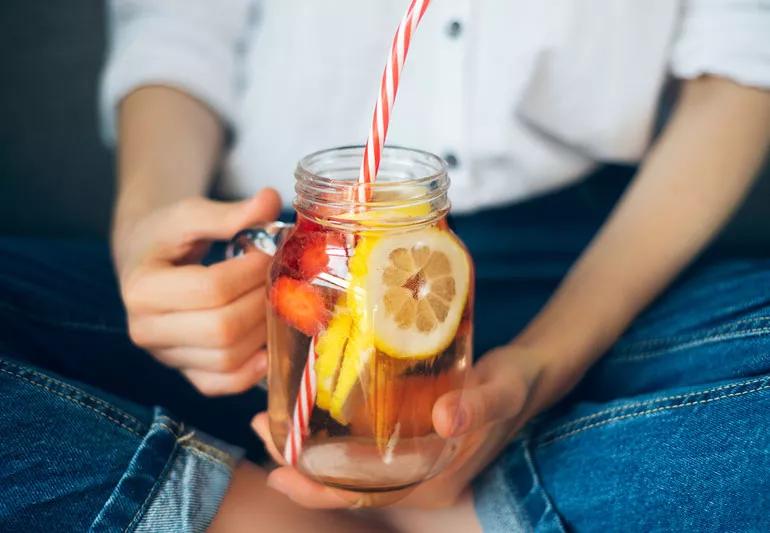6 tips to lower your risk

Image content: This image is available to view online.
View image online (https://assets.clevelandclinic.org/transform/48a15202-7585-490b-920e-a2ceabdf23ce/drinkWaterFruit-943740114-770x553_jpg)
Woman drinking water filled with fruit
Kidney stones are becoming more prevalent, with the risk rising more quickly in women, younger adults ― and even kids, experts say.
Advertisement
Cleveland Clinic is a non-profit academic medical center. Advertising on our site helps support our mission. We do not endorse non-Cleveland Clinic products or services. Policy
Urologist Sri Sivalingam MD, says kidney stones are also appearing in patients with historically low risks of stone disease.
“With the declining health of the American public, one of the symptoms is an increase in kidney stones,” says Dr. Sivalingam. “Over the last five to 10 years, we’ve seen an increase in the prevalence of stones with more rapid increases among women and kids.”
Dr. Sivalingam offers this advice to work toward prevention:
When you’re not drinking enough fluids, your kidneys produce less urine, making your urine become more concentrated and more likely to develop stones, Dr. Sivalingam says. Drink 10 to 12 cups of fluids, with at least half of that as water, and be sure to drink 1 cup of fluid before bedtime, he advises. The target is to try and make more than 2 liters of urine daily.
Maintaining proper hydration is even more critical in hot climates. In fact, one study predicts that global warming will increase the risks of dehydration and stone disease in the future — as much as a 30% increase in some climates.
Poor diet and what people are eating has a well-documented link to kidney stone development, says Dr. Sivalingam. Culprit No. 1 is too much sodium, which leads to an increase in calcium in the urine. So keep the salt shaker off the table and avoid fast food, canned or processed foods. It’s also important to read food labels on everyday items such as bread, which can have a significant amount of salt.
Advertisement
Dr. Sivalingam says too much fructose — such as the high fructose corn syrup found in many processed foods — can also contribute to stone development. To help prevent kidney stones, he recommends limiting fructose intake.
Adding more citrus fruits to your diet, such as lemons, oranges and melons, can help prevent kidney stones, according to Dr. Sivalingam.
Contrary to popular belief, calcium intake can actually help with kidney stone recurrence. Pairing calcium rich foods such as milk, yogurt or cheeses with each meal can help with calcium oxalate stones, which is the most common type of kidney stone in the U.S.
“As the obesity epidemic has continued in this country, so have the risks for kidney stones,” says Dr. Sivalingam. Obesity is strongly correlated with diabetes — another kidney stone risk factor — and to the kinds of high-sodium processed foods that increase calcium in the urine.
Advertisement

Sign up for our Health Essentials emails for expert guidance on nutrition, fitness, sleep, skin care and more.
Learn more about our editorial process.
Advertisement
An overactive bladder, UTI, kidney stones or an enlarged prostate can affect how you urinate
Make these lifestyle changes to help prevent kidney stones
Why kidney stones in kids are on the rise (and what to watch for)
Say goodbye to kidney stone pain with these 7 expert diet tips
An expert explains a complicated relationship
With warmer temps and increased physical activity, winter stones can begin to travel
One is related to your urinary system, while the other is related to your digestive system
Type 2 diabetes isn’t inevitable with these dietary changes
Applying a hot or cold compress can help with pain
Pump up your iron intake with foods like tuna, tofu and turkey